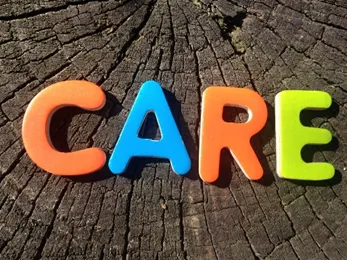When one takes an oath not to harm, the commitment is based on the care of others. My first love, nursing, and all its glory started with God allowing me to use my professional training to participate in“the laying on of the hands.” It is a ministry displaying an external expression of care. Over my professional career, working within the walls of an enormous tertiary hospital in the Texas Medical Center, Houston, and even in my journey of caring for my mother, the universal desire was centered on care, compassion, empathy, and safety. Each of the aforementioned constructs is the foundation of Care 101. Keep in mind that our loved ones want to age in place; meaning staying in their own homes. Therefore, having a fundamental foundation on how to support loved ones as they begin health challenges is important and necessary.
There is no algorithm to care for others, no secret sauce or unique concoction you can buy to make the caregiving world come together in a way that promotes a seamless journey. It simply starts with a yearning to help and a heart to serve. It begins with the spirit that considers putting yourself in the place of someone needing care. Ask yourself, what would you want if you were the care recipient?
Regardless of where care is provided, the actions should be the same. Notice that I did not say the problems or medical conditions your loved ones may be facing should be the same. Care rendered will always be the need of the desired outcome based on circumstances. Let me share a few examples. For a loved one with a chronic disease, the care may be specific to managing the disease. Someone with a mental illness would be addressed differently (same care lens) based on one’s ability to participate in the care. Someone bedbound, where independence has been taken away will need an empathic stance. You see, understanding the perspective of the illness and expressing empathy are significant attributes of caregiving. Understanding your loved one’s perspective entails investigating actions, feelings, non-verbals, and worries, regarding the impact of the illness or disease to a degree that is possible.
Always consider, first, how you would want to be treated if the role were reversed. Never let it be about the ability to perform any task to duty; let it be about Caregiving 101 doing all the things needed centered on care, compassion, empathy, and safety. Those actions will acknowledge ability.
My mission is to speak hope and healing to others in the caregiving space or facing a caregiving journey. What you do for others does not go unnoticed. Remember that! As Your Proactive Caregiver Advocate, know that it does make a difference. Be well, be safe, and bye for now.
Dr. Cynthia J. Hickman is a retired registered nurse and case manager; CEO of Your Proactive Caregiver Advocate and author of From the Lens of Daughter, Nurse, and Caregiver: A Journey of Duty and Honor, and The Black Book of Important Information for Caregivers.

